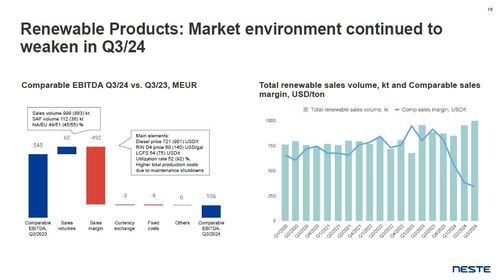Neste reports sluggish voluntary SAF demand

SOURCE: Neste Corp.
October 24, 2024
BY Erin Krueger
Advertisement
Advertisement
Related Stories
Haffner Energy and Luxaviation Group are strengthening their partnership with a non-exclusive 15-year offtake agreement in Europe with fixed SAF volume and price terms, both companies announced on Sept. 10.
The U.S. EPA on Sept. 12 released a proposed rule to end the Greenhouse Gas Reporting Program. If finalized, the proposal would remove reporting obligations for most large facilities, all fuel and industrial gas suppliers, and CO2 injection sites.
The Coalition for Renewable Natural Gas and American Fuel & Petrochemical Manufacturers in September filed separate lawsuits challenging the U.S. EPA’s final rule to partially waive 2024 cellulosic blending obligations under the RFS.
Provectus Biofuels Inc. on Sept. 11 announced it has signed a non-binding letter of intent with a regional Alberta airport that sets out indicative terms under which both parties intend to negotiate a definitive long-term offtake agreement for SAF.
Worley has been awarded a contract by Preem for FEED verification for the planned conversion of the ICR plant at the Lysekil refinery in Sweden from conventional diesel production to the production of renewable diesel and SAF.





